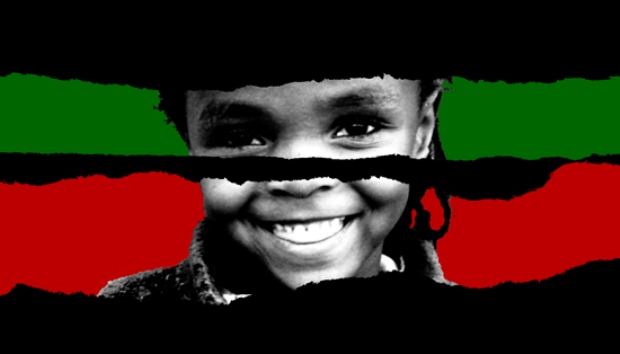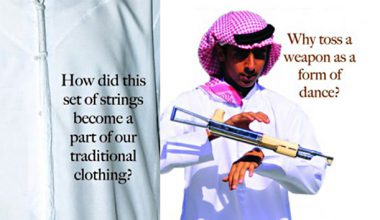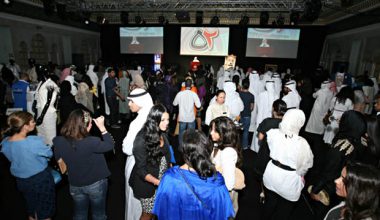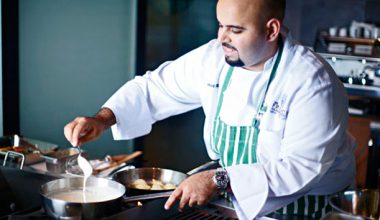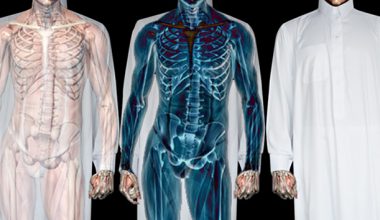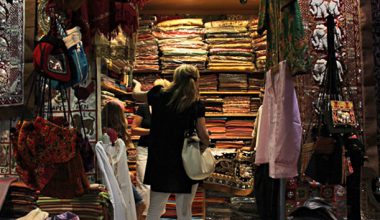
Kuwait, a major player in the international aid arena, has done it again; this time its Kuwaiti youth that are carrying on this charitable journey. Kuwait 4 Kenya – a divisional project under a proposed K4W (Kuwait for World) initiative that is being planned by LoYAC (Lothan Youth Achievement Center) aims to provide tangible and intangible aid to youth centers and schools.
Launched in 2006 by Nadia Al Ghadiri, Kuwait 4 Kenya (K4K) has had many successes over the last 3 years. The initiative sends youth volunteers from Kuwait to Kenya to help support local community projects and aid them such as the Mombasa Youth Counseling Center. Volunteers perform various activities such as teaching in schools, building classrooms, donating books, computers and other equipment which is needed.

The K4K Loyac Volunteers have a hefty list of achievements and accomplishments under their belts. So far they have helped in renovating a youth counseling center, which included the center receiving a fresh coat of paint, a new library, computer room, TV sets, audio systems, furniture, and proper plumbing system (something crucial since the center runs a voluntary counseling and testing clinic for HIV testing). K4K also built two new classrooms for the Child Development Center in Kenya, and furnished it with blackboards, and desks as well as teaching the children to use Computers, Math, English and HIV Science. They also recently built a new kitchen and dining hall to seat 75+ students in the Child Development Center, providing new desks for students and teachers in the Goodwill Academy, as well as upgrading an HIV laboratory in the Mombasa Youth Counseling Center.
Khaleejesque interviewed inspiring philanthropists Dari AlHuwail, Amna Hussain, Sara AlAnsari and Maryam AlHamad, and got their personal accounts on their amazing charitable feats in Kenya.
KT: Some would consider going to Kenya on a volunteer assignment kind of risky, what made you decide on taking this step?
DH: Going to Kenya was a continuation of previous volunteer journeys for me. Every summer, I make sure I dedicate some time to benefit others and to benefit myself. It’s now something I plan every year. I know that whenever I travel, I can make my summer a time that consists of not only a lot of leisure time, but a lot of volunteer work as well.
MH: I've always been interested in volunteer work, and I decided it was time to make a difference somewhere else, to put Kuwait in a better light. I can't deny I was a bit worried about going somewhere new, somewhere different, but there's a first time for everything. And at the end of the day, I knew that the greater good outweighed the risk. For me, it was a dream come true.
KT: What expectations did you have of Kenya and how was it in reality?
AH: I felt I would be a stranger, but I wasn't at all. It was my new home. We all grew to know and love one another, and I formed a family who I am still in touch with today. I thought I would find the children and young adults feeling very limited, but they were in fact extremely ambitious people who focused on having a healthy, bright and successful future.
SA: I was expecting a barrier, but when I went there, there were no walls. I don't mean to sound ignorant, but I always had a sense that people living in impoverished areas around the world would be very unhappy and negative due to the lack of resources and wealth, but surprisingly I was amazed and overwhelmed to see that the Kenyans proved to be the complete opposite. They were filled with so much joy, regardless of what they had or didn't have. The locals were always singing and dancing in the streets all the time and just being a part of their world for a few weeks really gives you a sense of appreciation.
KT: What did you learn about Kenyan people through your work with them? What was their outlook on what you were doing, and on Kuwait?
SA: The Kenyans are people full of culture, happiness, love, dreams, and gratitude. They helped us with our work and made us feel at home the entire time we were there. Before leaving, as a small token of appreciation, they gave us gifts that represented the Kenyan culture to take back with us so we would always remember them. I really believe that to the Kenyans we met, we are a representation of Kuwait, so I truly feel they will always be grateful towards Kuwait and its people.

DH: When teaching, the kids were very eager to learn. They saw us as their friends or older siblings, not as their teachers. It was a very familial setting, we laughed, we joked, but we learned. Although the kids were very shy at the beginning, they opened up to us and started asking more personal questions, such as where we're from and how old we were. They wanted to get to know us better and that showed how they're genuinely interested in us and in Kuwait.
KT: What did you take back and learn from this experience?
AH: I now know I have to appreciate what I have, my family, my country, my life. I should follow my dreams knowing that I can achieve. I learned that I can change someone’s life, which will in turn change mine.
MH: I took back friendship, humility, adventure, patience, and a whole lot of good memories. I made a difference, even if it's a small one. When I left Kenya, I had the satisfaction knowing I made someone smile, and that, I can still say is the best feeling I have ever experienced.
KT: What kind of message would you like to send to people who are thinking of volunteering?
AH: You might think you're volunteering to benefit other people, but you're mostly benefiting yourself. You're building your own character. It's a great experience, and I can guarantee you will not regret it.
SA: It's a way of giving back for everything that was given to you in your life. Don't think twice. The inner joy you will get out of such an experience is far too great to describe.
MH: I think it's very simple. If you truly are interested, go ahead and do it, but make sure you go with an open mind. Remember not to be discouraged by any obstacles that might come your way, because no matter what, at the end of the day, it's for the greater good, and that is always worth it.
KT: Through your various volunteer work and achievements in Kenya you must have had various memorable moments, can you tell us some?
AH: Going to Kenya is a once in a lifetime experience, but when we went to the community where many street glue-sniffers lived, it was an adventure of its own. It was scary at the beginning, but when we sat down with them, talked and listened to their stories, I felt that these people are people who really gave up on living and felt that life wasn't merciful on them. We tried to teach them how to fight, and how to believe that there is a chance for them to live among each other, to have a good job and a great family. My experience in Kenya was amazing and my experience when visiting this community was very touching.
SA: We were standing in a circle with all the children ready to play a game. We started by asking the children what they wanted to be when they grew up. When it was time for a 4-year old boy, named Baraza, to answer, one of our friends there asked the question in Swahili, because Baraza didn't know a lot of English. To answer the question, he screamed out "Muzungu!" Everyone around us started laughing hysterically, except us of course because at the time, we didn't know what he meant. A friend of ours then said "Muzungu means foreigner. He wants to be a foreigner like you guys when he grows up." We then joined them in laughter. That was one funny, memorable moment I took back. I wanted to take that kid back with me too!
DH: In 2009's trip we meet a 10-year old street-kid named Jackson on the stairs of the Mombasa Youth Counseling Center (MYCC). He was sitting and talking with the security guard when we walked in the other day. He spoke very little English but spoke Swahili and Massai fluently, so we had to speak to him with our some-what ok Swahili or get help from MYCC youth to translate for us. Jackson came to Mombasa on a truck on his own about a year ago. He ran away from home, for reasons we couldn't figure out. Victor, an MYCC youth coordinator, provided a safe and clean shelter for Jackson as he allowed him to stay at the center. We asked Jackson how we can help him achieve what he's aspiring for and what it is that he needs. Little did we know we'd get a surprising answer! He replied without any hesitation or thought: "Mimi nataka kwenda shule" which translates: "I want to go to school." We were very happy and amazed. We were expecting an answer along the lines of: I want food, clothes, toys, money, etc. But for him to come and say I want to be in school and get educated was awesome. With the help of Victor and searching the Internet/local ads to find a new home/organization that would take care of Jackson and support him throughout his education, we were fortunate to find WEMA, a center for rescuing and sheltering street-children. Jackson was very happy and excited we helped him by finding WEMA(http://www.wemacentre.org/) and was very grateful for sponsoring him to go to school. To see how excited he got and how he quickly he packed all his belongings in a plastic bag, rushing out with the WEMA counselor was definitely a memorable moment we all will not forget.
MH: At the beginning of our teaching days in the Child Development Center, we tried to break the ice by asking the young boys and girls in class what they wanted their future careers to be. We got many different answers such as a policeman, president, pilot, or teacher. The most repeated answer however, was a doctor. Quite common all over the world you might say, right? But in Mombasa, the reason behind wanting to be a doctor was very different than the reasons we might hear here. This was very touching to me because the children would go on to explain that they wanted to be doctors to treat people with HIV/AIDS and to find a cure that will make their people live a healthier, AIDS-free life. It is very unfortunate that smart, ambitious kids at the age of 13-14 years old feel the need and obligation to link their dreams to this life-threatening disease. They give me the strength and power to strive to achieve my dreams, reminding me that the sky truly is the limit.
KT: Any there any future K4Kenya developments?
DH: K4K will continue expanding its efforts and projects in Kenya. In 2010, we are planning to start building full structures for a school/dormitory at Tototo Project for orphans in an underprivileged village. We are hoping to include more volunteers and take upon bigger projects. Kenya is only the start under the Kuwait for the World (K4W) initiative, so we're hoping to include more countries and regions around the world.
KT: How can people help the K4K initiative?
MH: If there are any dedicated individuals interested out there, please don't hesitate to contact us. Our volunteer work is not only focused on our work in Kenya, but in Kuwait as well. You can check our website at www.k4k.loyac.org to sign up and to find more information, pictures, videos, and media coverage. Being part of LoYAC's Kuwait for the World initiative means Kenya is just a start. We'd like to grow bigger, to be more successful and to reach out to people all around the world. Follow us, support us, and join us in making a difference. Finally, I'd like to thank the Khaleejesque team for this interview. It is with the support of caring individuals like you that we stay eager and motivated to achieve our goals.
For more information on K4K and volunteering opportunities, take a look at their website www.k4k.loyac.org http://www.k4k.loyac.org/
You can also follow them on Twitter here http://twitter.com/kuwait4kenya , in which they tweet their adventures in Kenya.
– Khaleejesque. Images courtesy of K4K.

